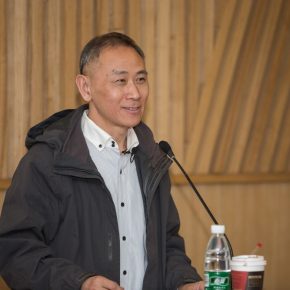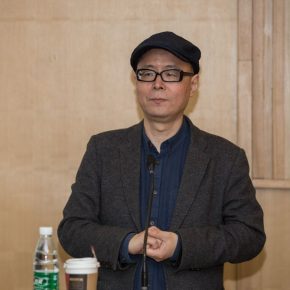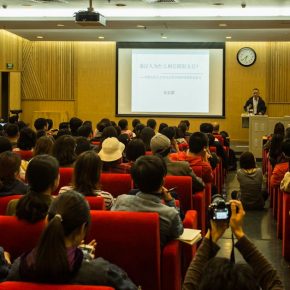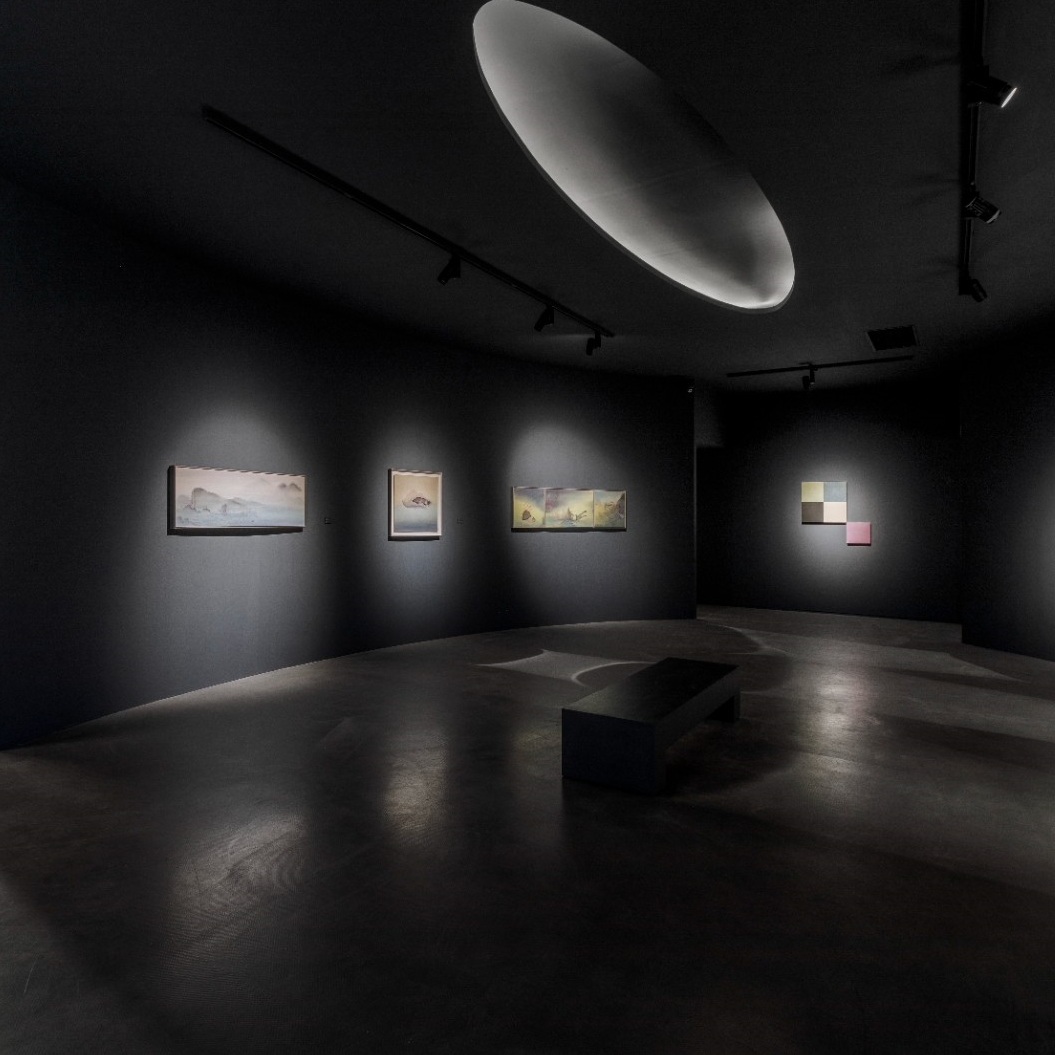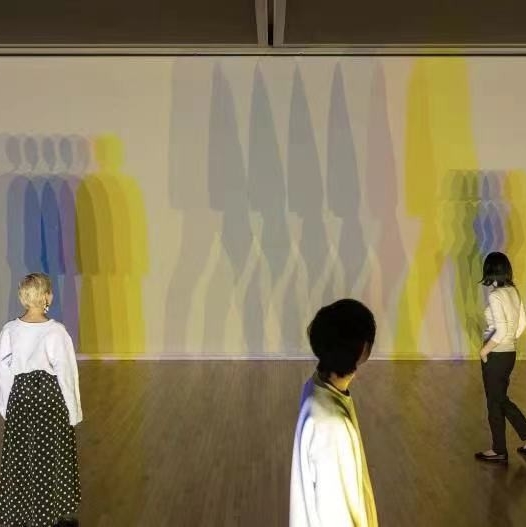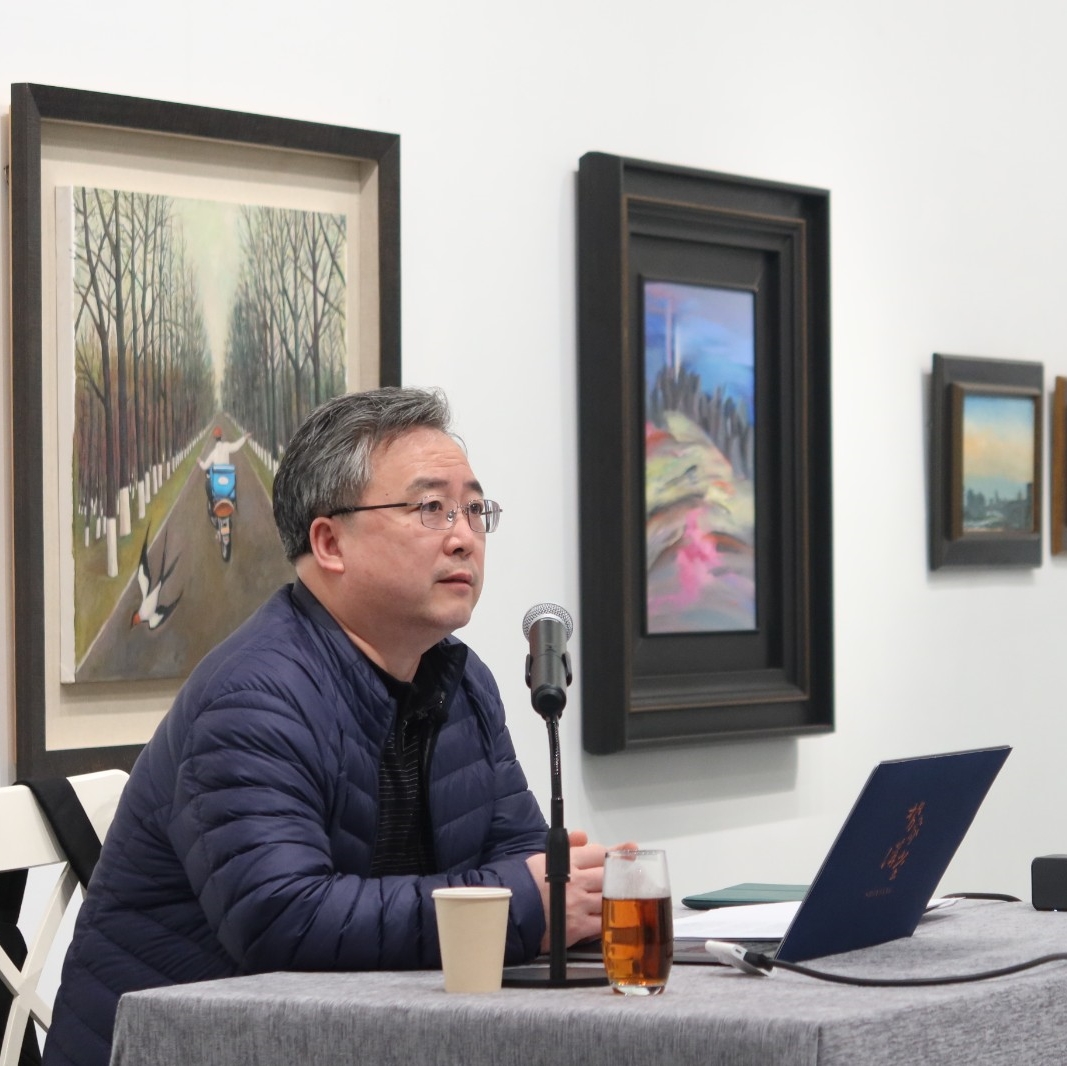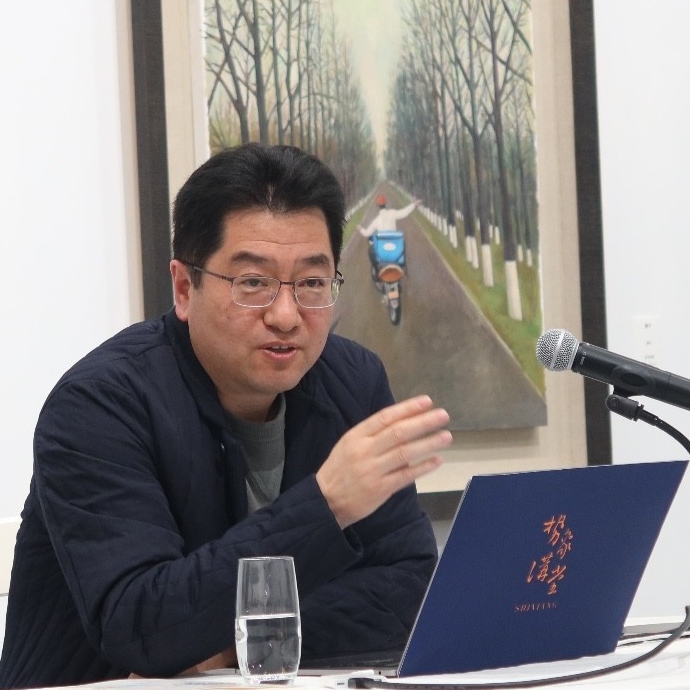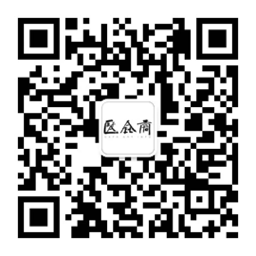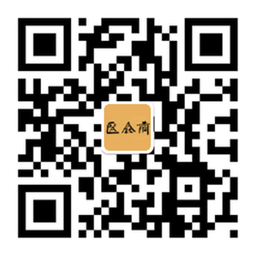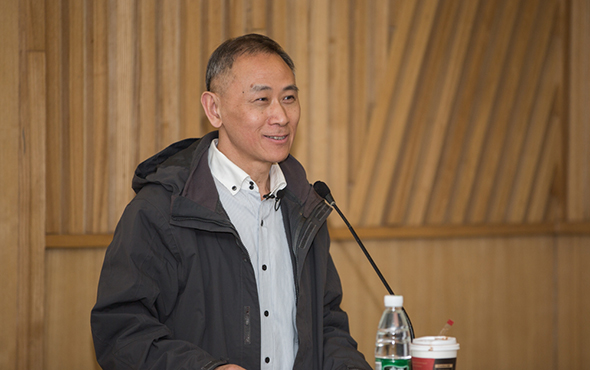
On March 28, 2018, the third session of the “Humanities Forum” “Great Times for Chinese Philosophy” was held in the Red Chair Lecture Hall of CAFA. Zhang Qiqun, Professor of the Department of Philosophy and PhD Supervisor from Peking University, gave a lecture on “Why did the Qin and Han People Believe in Yin-Yang and the Five Elements?” Li Jun, Professor and PhD Supervisor at CAFA, hosted the lecture. During the lecture, Prof. Zhang started from the historical background of Yin-Yang and Five-element theory in the Qin and Han dynasties. By quoting the historical accounts that remained from ancient times, he demonstrated & expounded the relationship between the ancient Chinese astronomy and astrology which was an important topic in? academic circles. He both explained the internal reasons why the Yin-yang and Five Elements were believed by people during the Qin and Han dynasties, and proposed the significance of the intellectual history of the astrology replaced Chinese ancient astronomy.
Prof. Zhang Qiqun started from an historical background to analyze the thoughts and forms of the Qin and Han dynasties. It was precisely these theories that had laid a solid ideological & political foundation for the consolidation and stability of the Han Dynasty, and the essential idea of this era was Yin-Yang and the Five Elements. This doctrine was merged with other thoughts and innovated by Dong Zhongshu and other people, to form the theory of “Great Unification” in the Han Dynasty and it became the ideology of the Han Dynasty. After talking about the academic consensus, Prof. Zhang Qiqun questioned: How did the Yin-Yang and Five-element theory which had nothing to do with the pre-Qin Confucianism, Mohism, Taoism and Legalism, become the ideological subject and soul of the Han people? How was Dong Zhongshu’s theory of interaction between heaven and mankind consistently promoted by the Han Dynasty from the king to the people? Prof. Zhang traced the theory back to Zou Yan and his school during the Warring States Period through historical accounts of the past events. The astrology that flourished in the Warring States period was integrated with the Yin-yang and Five-element theory to create an ideology that conquered the emperors and intellectuals of the Han Dynasty.
Some scholars believe that ancient Chinese astronomy started as astrology, but Prof. Zhang held a different opinion. He argued that “ancient astronomy was not astrology” by using literature. In the “Xia Xiaozheng” of Dai De’s “The Book?of?Rites”, it describes the operation of the stars, sun and moon in the four seasons, connecting the weather and visible phenomena with agricultural production, and the content which is similar to what is in an agricultural book. “The Book of Songs ? Songs of Bin ? July” describes the astronomical phenomena of four seasons, phenology and farming life, which have nothing to do with astrology or “political astronomy”. The traditional twenty-four solar terms were created based on the changes of the sun’s position in the zodiac throughout the year, reflecting that agricultural production was?a priority in the mind of the ancient people. He was able to list relevant documents to prove that Chinese astronomy was mainly aimed at serving agricultural production and expressing the view of the universe in farming society at least before the Spring and Autumn period, and it was not affected by astrology. In addition, Prof. Zhang discovered that all the records of the astronomical phenomena made before the Spring and Autumn Period and the Warring States Period were purely the records of astronomical phenomena through the analysis of astronomical records that had nothing to do with farming. Also, the stars were originally named after the tools and the related things in life, animals, and myths & legends. They had nothing to do with astrology. It further demonstrated that “the original forms of astronomy in ancient China had nothing to do with astrology”.
The present academic circle “is confused with ancient Chinese astronomy and astrology”. After carefully reading the literature, Prof. Zhang Qiqun redefined the changes from astronomy to astrology in ancient China. He believes that it fundamentally altered from the late Spring and Autumn Period & the early Warring States Period: astronomy was replaced by astrology, attempting to reflect the hierarchy of human society with the astronomical phenomena, in order to demonstrate that it was legal for kings to rule people. Prof. Zhang then demonstrated through the use of records in “The?Commentary of Zuo” and?the?“Discourses of the States”, and discovered the development trajectory of astrology. Before that, 37 eclipses were recorded in the “Spring and Autumn Annals”, simply recording the times of solar eclipses, except for three records reading “Drumming, offering sacrifices to Earth God”, Prof. Zhang pointed out that it was an ancient way to deal with the solar eclipse, which was like the ritual of praying for rain when there was a drought, and it was essentially different from astrology. In “The?Commentary of Zuo” one can see that astrology began to enter people’s vision after Lu Zhaogong. After the traditional astronomical “Four Phenomena (Sixiang)”, it appeared as “Distinction (Fenye)” and “Three Enclosure (Sanyuan)”, corresponding to human emperors and social hierarchy and it was veritably due to astrology. Next, he expounded the similarities and differences of the records of King Wu on Zhou’s conquest of Shang Dynasty between Li Gui’s inscription and?“Discourses of the States ? Discourses of?Zhou II”, to prove that Ling Zhoujiu’s “The year of Jupiter passing in the Chunhuo constellation” was fabricated by the successor, there was no astrological content in Li Gui’s inscription, which proved that later astrologers falsified and fabricated the ancient history; at the same time, it also showed that at least in the era of Ling Zhoujiu – in the King Jing of Zhou 23th year (522 BC) of the late Spring and Autumn Period, astrology had become a popular thought.
Prof. Zhang Qiqun finally analyzed the causes and impacts of the changes in the Spring and Autumn Period and the Warring States Period. On the occasion when vassals were contending for hegemony in the Spring and Autumn Period and Warring States Period, and it was inevitable that the vassals were insecure. The original worship and witchcraft activities were rearranged by some people who specialized in astronomy, calendars and mathematics, thus creating a great astrological climate. It had an inseparable relationship with the Zou Yan School which greatly influenced the government and people at that time. Zou Yan School both reformed the thought of ancient Yin-Yang and the Five Elements, and also integrated it with astrology. Astrology used the Yin-Yang and the five-element concept to explain the astronomical phenomena, and it obtained quality in the philosophical theory. At the same time, due to observable and computational qualities of astronomical phenomena, the Yin-Yang and the Five-element theory has become a verifiable theory. The reformed Yin-Yang and the Five-element thought then rapidly and significantly impacted on ideological and political fields. The First Emperor of Qin’s Epang Palace was built based on the phenomena of the stars in the sky. The astrology combined with the Yin-yang and Five-element thought was fully developed in the Han Dynasty. Although the early Confucianism, Mohism, Taoism and Legalism were basically irrelevant to Yin-Yang and the Five Elements, some ancient books compiled by the Han people were clearly impacted by the astrology, and Yin-Yang and the Five Elements, which were based on a variety of doctrines that were constructed or reconstructed in the Han Dynasty.
Prof. Zhang Qiqun redefined the emergence and formation of ancient Chinese astrology and the relationship between astrology and astronomy. Understanding these changes leads people to know the basic boundaries of ancient Chinese astronomy and astrology, and also discover an important trajectory in ancient Chinese thought. More importantly, people can also discuss the changes of intellectual history that influenced Chinese knowledge at that time. However, Prof. Zhang also said that the intellectual circles had never stopped fighting against the astrology. At that time, the representative figures included Xunzi and Wang Chong. Perhaps, their ideological opinions continued the plain astronomical thoughts of ancient China. These thinkers had clashes with astrological theories, and constituted another important clue for the development of ancient Chinese intellectual history.
Text by Wu Lan, translated by Chen Peihua and edited by Sue/CAFA ART INFO
Photo by Hu Sichen/CAFA ART INFO


